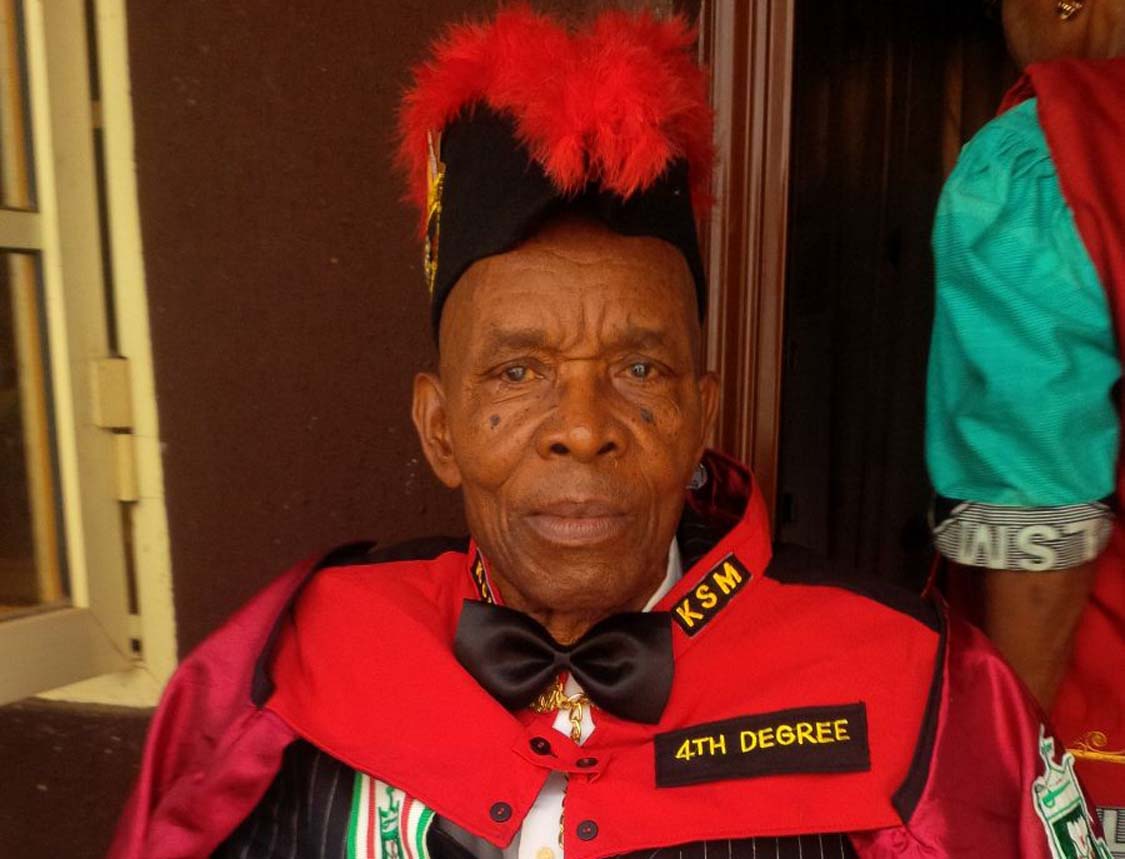Sometime, a little over 20 years ago, a little drama occurred in a land dispute in a customary court somewhere in the old Orlu Zone of Imo State. As the dispute escalated, one of the parties struck upon a not altogether un-Nigerian way of getting an upper hand in the proceedings. He was a senior traditional ruler and business man who had lots of money to spare. He approached the presiding officer with an offer of One million Naira. That was a considerable amount in those days. Several years later, this traditional ruler narrated how he was both baffled and awed that a man who, in his estimation, barely earned enough to put a roof over his head, could turn down with more than a whiff of anger a sum of money that was worth more than anything he may have earned in his working life.
That presiding officer who was committed enough to doing things right that he turned down more money than he he’d ever earned was Augustine SoChukwuma Odinkalu, who died on Christmas Eve, 2015, at the age of 79. A life-long teacher and community leader, Austin, as he was known by many, was one of a generation old enough to have memories of the Second World War but young enough not to have fought in it.
Born in August 1936, Austin was the fourth surviving child of a young widow, Rosaline (Rosa) Nwaugbala of Umuhu-Okabia in present Orsu (formerly part of Orlu) Local Government Area of Imo State, south-east Nigeria. A beneficiary of missionary education, Austin began primary education at St. Joseph’s Primary School Umuhu-Okabia, around the end of the Second World War. He would later complete this in 1951 at St. Charles’ School, Ihitenansa.
Financial hardships and family responsibilities conspired to suspend his desire to pursue higher qualifications for which his natural intellect and temperament easily qualified him. In the eight years following completion of primary education, Austin would pursue various teaching qualifications, becoming, in 1959, one of the last cohorts of true teachers to be certified by the pre-Independence Minister of Education in the old Eastern Region, Chief G.E. Okeke.
Advertisement
In 1990, he formally retired as a teacher and school head but his commitment to education was lifelong. In an active teaching and school management career spanning 39 years, Austin taught in 11 schools in the territories of the old Eastern Region, East Central State, Anambra and Imo States, heading six of them. During this period and all his life until his last breath, Austin invested everything he had in spreading and instilling the virtue of education in every child he came across, converting many a reluctant parent to the value of education.
A firm believer in equality, Austin was particularly passionate about the education of women and girls. He ensured that his wife and six daughters earned university degrees from under his roof and his four sons learnt to cook, clean and bake. Four days before he died, from his hospital bed, Austin took time off to counsel one of his adopted daughters-in-law on why she had to take her academic pursuits seriously and encouraged her not to relent.
“He did not mince words”
Advertisement
In 1960, Austin met a young female pupil also from Umuhu-Okabia, Anthonia Ihunnia. She was 15 and in her final year in primary school. A courtship would ensue, following which he proposed marriage to her in 1961. Writing in 2004, on the 40th anniversary of their marriage, which took place on 27 December 1964, the woman who had by then long become Mrs. Odinkalu recalled: “[h]e did not mince words. My heart loved him and his style of approach.… My conditions were that he had to wait for me to finish my education and work for two years. He religiously adhered to the agreement.”
Over his lifetime, Austin grew and earned a reputation as a man of his word, with an uncompromising commitment to equity, enlightenment and fairness. His union with his wife would last three days short of 51 years, producing 10 children, nine of whom survive him.
Over a lifetime spent in education, community and faith leadership as well as dispute resolution, Austin quietly built up a reputation as a man of uncompromising decency. For nearly two decades beginning in the late 1970s, Austin kept the records of the community as the secretary to the traditional council and Cabinet of the Umuhu-Okabia Autonomous Community. In this and other capacities, it was his standard practice to refuse gifts of any sort from people whom he came across or who had issues before him. The family knew not to accept any gifts on his behalf. At over six feet, Austin was a man of considerable physical presence. The few who attempted with material blandishments to pervert his sense of propriety always left his presence in discomfort or dismay.
A good name is worth more than money
Advertisement
It was, therefore, somewhat natural that the Imo State Government would invite Austin, at the end of his public service career, to assist in nurturing the customary court system in the State as a judge. Over a nine year period he worked in this system, retiring in 2002 after serving the maximum tenure as presiding officer.
Somewhat reluctantly, having turned down numerous previous offers, Austin agreed in the last decade of his life to accept a traditional title, Eziafakaego (a good name is worth more than money) from the people of Assah Ubirielem. This title sums up the essence of his life.
Having begun his basic education at St. Joseph’s School, Austin would become in later life one of the pioneer leaders of what became St. Joseph’s Parish and the only person to have been both Secretary and Chair of the Parish Council.
A man of deep faith and a convert from the Anglican Church to Catholicism, Austin “had his fair share of earthly burdens but took them with grace.” He was particularly affected by the untimely death in 2006 of his son, Ikenna. This proved to be an inflection point in the final decade of his life. Progressively thereafter, he right-sized his commitments, focusing on community leadership and educational mentorships. Despite failing health, he remained a source of support and inspiration to all who came in contact with him.
Advertisement
Austin’s admission into hospital on 28 November 2015 coincided with the Silver Jubilee of St. Joseph’s Parish. On that day, the Parish awarded him a “Certificate of Meritorious Service” for the investment of his “time, talent and treasure to the development of the Parish between 1990 and 2015.” He was too unwell to attend and accept this acknowledgement in person on the day.
A fitting epitaph
Advertisement
On the same day, Austin was rushed into hospital in critical condition. Over the course of the following three weeks, his health appeared to improve considerably to the point where he began, first to request and then to demand to be discharged. Following a clinical assessment by the team of doctors attending to him, he was discharged on 21 December to spend the Christmas and New Year holidays with his family and return for review on 4 January 2016.
Three days after being discharged from hospital, Austin received the sacrament of extreme-unction (final rites) at home from his son, Rev. Fr. Obinna Augustine Odinkalu. In the hour that followed, he quietly slipped away on the afternoon of Christmas Eve in the arms of his loving wife of 51 Years.
Advertisement
Informed of Austin’s passing on Christmas Day, one of his contemporaries and friend for over 60 years, a former senior diplomat and university administrator, described him as “a complete man and one of God’s finest creation.” It is a fitting epitaph to a man who leaves a rich and indelible legacy of incredible civility, selfless service, remarkable sacrifice, and scrupulous decency. He is survived by his wife, nine children and 21 grand-children.
Advertisement
Views expressed by contributors are strictly personal and not of TheCable.







